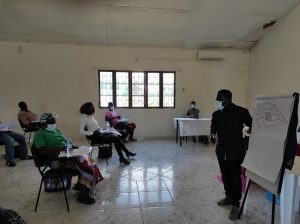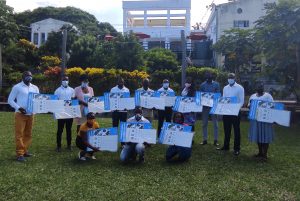
Mozambique has insufficient ophthalmological coverage caused, among other reasons, by the lack of professionals trained in the different disciplines of eye care. Since Eyes of the world began its cooperation programme in Inhambane, it has opted to train local personnel to make eye health accessible to the population. A training aimed not only at specialists but also training courses for primary care health personnel, traditional medicine practitioners, schoolteachers, etc.
Two training sessions have been carried out in recent months:
> Training of Practitioners of Traditional Medicine
In the most remote areas of the Inhambane province, access to health centers is challenging, mainly for geographical and accessibility reasons. In these communities, people with visual deficiencies and ocular pathologies are treated from traditional medicine by PMTs (Traditional Medicine Practitioners), who, despite not having a formal relationship established with classical medicine, are part of the health system and are recognized by the Mozambique Ministry of Health. PMTs are close to the population for cultural reasons and play a critical role in primary care
On March 12, Eyes of the world organized a training session for PMTs in Maxixe, Inhambane, where 12 men and six women participated. The ocular health representative of the province, Pereira Rumeque, imparted knowledge on prevention, diagnosis, and treatment of the main ocular pathologies so that PMTs know how to care for people who arrive with this type of problem and when it is necessary to refer them to the nearests hospitals.

> Teacher training
On March 19, Eyes of the world carried out, also in Maxixe, a training in eye health for teachers from schools in eight districts, to:
- raise awareness about refraction problems in schools
- promote the identification of these problems among student
- teach how to take visual acuity
Different dynamics were carried out to put into practice the learning acquired, and each teacher was given didactic material to use in their classes.